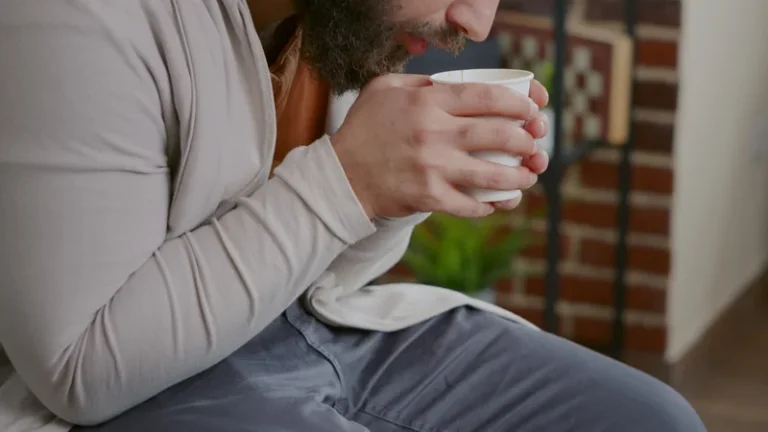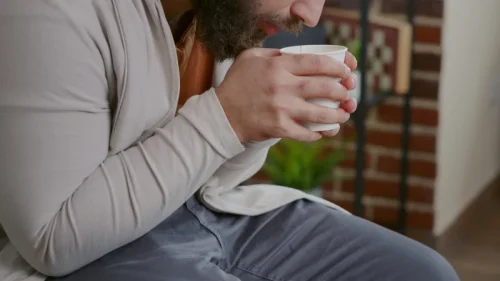Unlocking Healing: Benefits of Group Therapy in Addiction Recovery

By letting go of anger and resentment, they can develop stronger communication and trust with loved ones. These simple yet effective practices nurture a forgiving mindset, enabling individuals to let go of past grudges and work toward a healthier, more fulfilling life. Research, including findings from the Stanford Forgiveness Project, illustrates that forgiveness is not only beneficial for emotional health but also for physical well-being. Participants who practiced forgiveness reported decreased feelings of hurt and a reduction in long-term anger, leading to lower blood pressure and stress levels. Holding onto resentment, conversely, has been linked to health risks such as high blood pressure and increased cortisol levels.
Educational Resources on Mindfulness and Addiction

Discover five herbs to aid in the recovery process and support your healing journey with herbal wisdom. Transcendental meditation allows you to transcend above their current state by repeating a unique phrase or mantra. Often, a meditation instructor selects a mantra to allow you to achieve mindfulness and spiritual experience. Professionals in these programs can fine-tune your meditation practice and help you overcome any obstacles along the way. This practice is addiction meditation kundalini about generating compassion for yourself and others, which can be especially helpful during recovery. You start by sending positive thoughts to yourself, then expand those feelings to loved ones and eventually to all living beings.
- Meditation also strengthens the immune system by regulating inflammatory markers and gene expression.
- We maintain strict accuracy standards, sourcing information exclusively from credible sources for our website content.
- Meditation takes practice, but it’s free and accessible to anyone who tries it.
- Using mindfulness techniques, including meditation, can help people reduce stress and feel more centered in their daily lives.
- Members practice basic yoga poses and stretches to help connect mind and body, fostering relaxation and enhancing mood.
Relapse Prevention Planning

The five methods discussed – mindfulness, focused, movement-based, loving-kindness, and transcendental meditation – provide practical ways to aid in recovery. These approaches are easy to access and have been shown to work well within recovery programs. When combined with other therapies, these meditation practices can provide a well-rounded approach to recovery. Making them part of your daily life can help you stay grounded and support your journey toward long-term growth.
- Mindfulness-based interventions enhance self-awareness and cognitive control, allowing individuals to navigate stressors more effectively.
- It can help tame your anxiety, provide a greater self-awareness, and help you acknowledge and cope with emotions that may not be rooted in reality.
- Navigate your way to recovery with insights on how to ease Xanax withdrawal.
- Moreover, the Mindfulness-Based Relapse Prevention program at the University of Washington represents another successful merger of meditation and traditional therapy.
- This activity helps members define short-term and long-term goals, creating actionable steps to achieve them.
- MBRP combines mindfulness and cognitive-behavioral relapse prevention skills to help individuals maintain sobriety, prevent relapse after having undergone initial SUDS treatment programs.
- You can meditate whenever you can find sufficient time to focus and a quiet space.
Understanding Teen Drug Abuse

Members realize they’re not alone in their journey by discussing their challenges, victories, and motivations for recovery. Some common pieces of advice that people in recovery receive are to stop judging themselves and others, to listen to their bodies, and to implement some structure and stability into their lives. While meditation cannot replace addiction treatment, it can strengthen a person’s ability to stay sober. Terry Hurley is a retired educational Alcoholics Anonymous professional and freelance writer with more than fifty years of experience. A former reading specialist and learning center director, Terry loved her years working with children in the educational field.
These mediations often include visualization exercises, breathwork, body scans, and other practices. Movies and TV shows often depict meditation as simply sitting still for a long time. Research suggests that meditation may induce a natural high, promoting activity in the happiness center of the brain. Meditation is believed to increase cortical thickness and neural density with sustained practice. Understanding drug and alcohol-induced brain damage, its impacts, and the path to recovery. Join the Stomp the Stigma fundraiser to redefine recovery and fight mental health stigma through community support.
Daily Meditation Tips
Addictioncenter.com notes several other emotional and environmental triggers as well as warning signs for relapse. Notice how many are outcomes of the pandemic, i.e., loss of a loved one, boredom, etc. Of the APF survey respondents, 75% reported emotional changes since the beginning of the pandemic, especially increased worry (62%), sadness (51%), fear (51%), and loneliness (42%). Holistic approaches are part of many recovery programs.They can help you heal and grow through all stages of recovery.
By observing your thoughts and feelings as they come, you create a gap between urges and decisions. Start small – just a few minutes each day – and let the practice grow over time. Next, we’ll dive into five meditation techniques specifically designed for addiction recovery.

At Archstone Behavioral Health, we understand that the cost of rehab often discourages people from seeking help. That’s why our goal is to make rehab accessible through a variety of rehab insurance coverage plans we have on offer. We invite you to learn more about them and let our team help you find the right insurance option for you or your loved one.

Laisser un commentaire